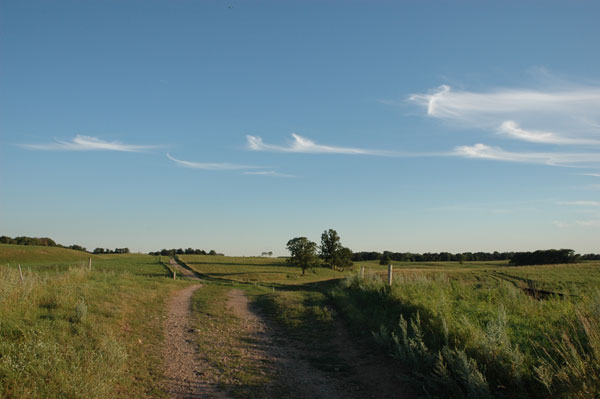Ranchers and bureaucrats are destined to not get along. But that doesn’t mean we shouldn’t be engaged.

I’m sure most everyone would agree that public service is a noble calling. We are indebted to all those since our founding fathers who have stepped up to serve the greater good. Unfortunately, serving the good of the public and that of the bureaucracy seems to be almost diametrically opposed.
I know many ranchers who have considered just moving off the grid entirely versus dealing with bureaucrats and bureaucracies. But the reality is there is no way to avoid them, no matter how frustrating, impersonal, complex, incompetent, and arrogant they may be. In fact, the reach of bureaucracies into our daily lives seems to be growing exponentially, almost at the pace of their incompetence.
In business, we have to innovate, we have to do things more efficiently (reduce overhead), we have to improve the quality and timeliness of our decision-making and we have to become more customer centric and deliver more value. It is a never-ending, daily struggle for survival that ensures that businesses have this type of focus.
The great irony is that bureaucracies, because of their nature, often perversely have the opposite incentives. They must spend all their money, grow their sphere of influence and gobble up more and more resources while often doing less and less.
Thus, innovative, cost-effective, efficient, customer focused, responsive to change, or even user-friendly are not words that one usually associates with bureaucracies, and for good reason.
For example, I recently had to go to a local social security office—local when you are a rancher includes traveling 180 miles to the nearest government office—to get a replacement social security card for my son. I won’t go through the month of wasted time attempting the process through the mail that his mother suffered through.
I knew I was in trouble when the alert security guard sent me back to my car as he spotted my pocket knife. When I returned, I had the privilege of standing in line to answer several questions on a touch screen computer so that I could be issued a number that would allow me to speak to a human.
There was not enough seating so we had to stand. The only thing to do was to watch the Social Security TV network that was playing on several big screens around the room. The weather was the focal point, along with admittedly well-conceived marketing messages that would make you inclined to be supportive of the Social Security Administration (SSA) and the job it does.
The other tidbits were kind of shocking as they were highly reflective of a political agenda, which ironically was mostly focused on global warming. While I hope I never have to return to that office, I almost want to go back in a year or so and see if the new administration has changed the agenda of the SSA television network.
What struck me is that the Trump administration probably wouldn’t be able to effect that change. There are just so many layers, so many agencies, that it is almost impossible to believe that they could ever get that far down their priority list.
Sitting there waiting for my number to be called, I couldn’t help but overhear the conversations between desperate people who were needing problems resolved and the absolute indifference to their situations by the people working there and their rigid adherence to a set of rules.
My problem was solved instantly. Why it required a 7-hour drive and 2 hours of waiting, when it should have taken a 30 second phone call, is something I never will understand. But it did make me understand something I had never taken the time to contemplate before.
My state is unique as far as ranching goes. One side of the state operates in relative freedom from government, land is almost universally privately held and we do not have much pressure from urban governments. The other side operates largely on public lands and deals constantly with a myriad of competing interests for those lands, as well as urban and development encroachment.
Those of who us who live without having to deal with government bureaucracies tend to be a little less concerned about government; those who are forced to deal with them realize the importance of being engaged at so many levels.
Ranchers and bureaucrats are destined to not get along. Ranchers aren’t tied to rules and power grabs when it comes to problems, they are geared to fixing them proactively and as quickly as possible. Ranchers live by a code that respects others; bureaucracies by their nature are almost inclined to disdain the individual. Ranchers are inclined to action; bureaucracies to discussion.
In case you are wondering, I didn’t walk out with the card even after having to provide what seemed like 25 different proofs of our identity. Instead, the new card will be mailed in 10-14 days. If it doesn’t show up, I’m sure I'd be welcome to return to get another number next week.
About the Author(s)
You May Also Like





